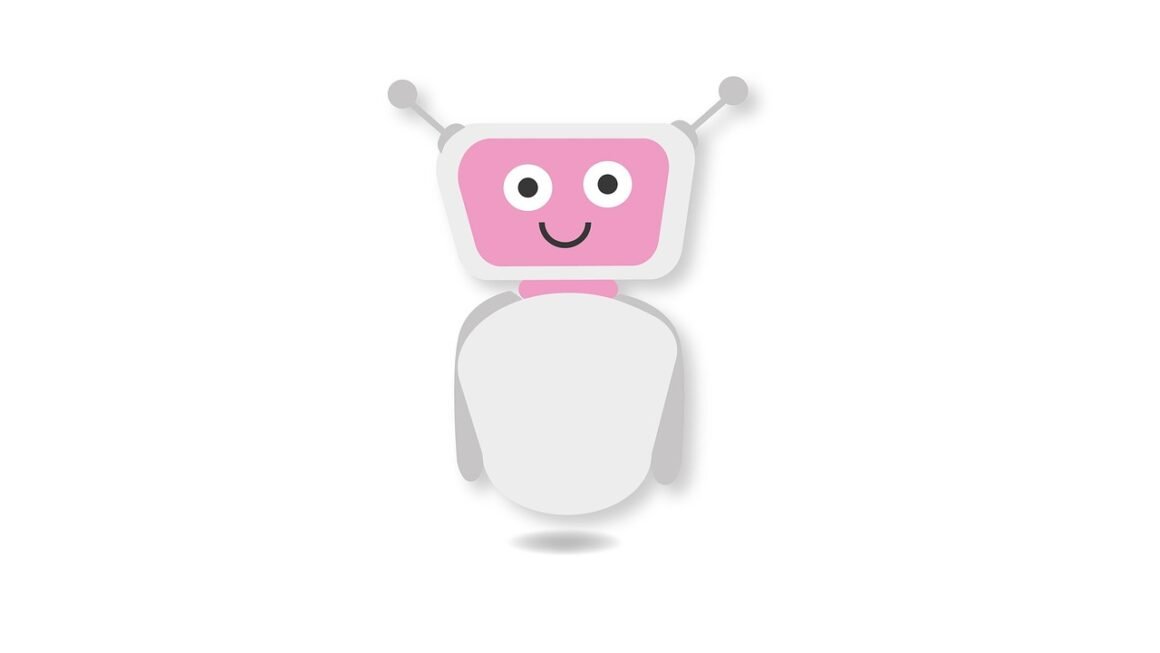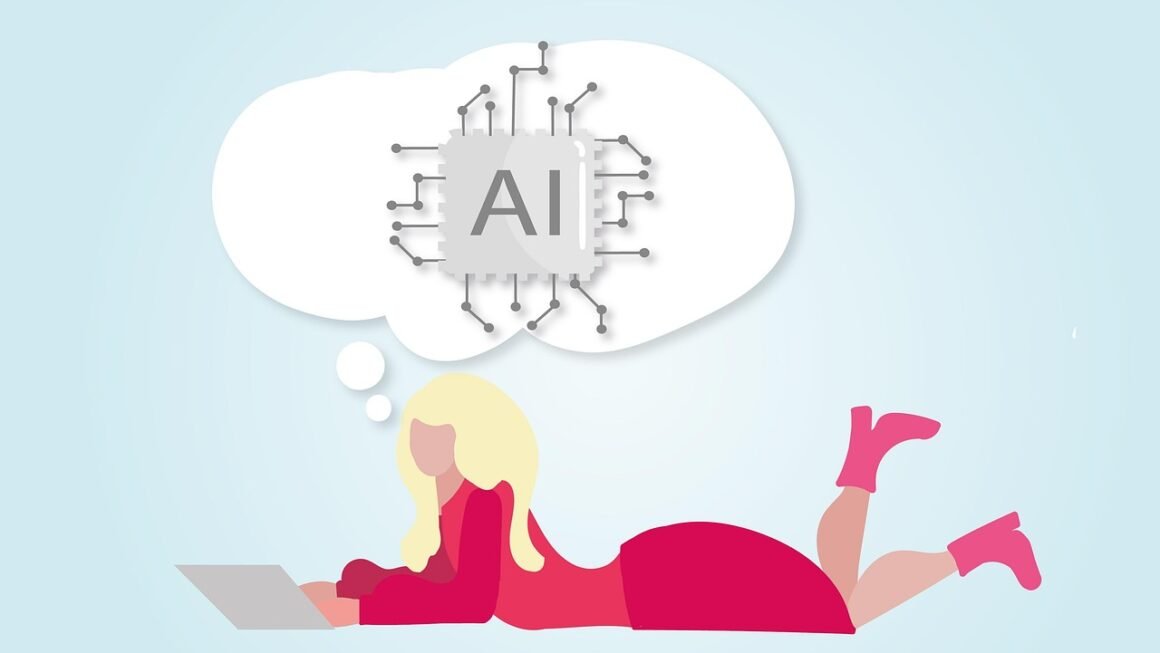Imagine a world where tasks are handled automatically, data is analyzed in real-time to provide personalized recommendations, and complex decisions are made with unparalleled efficiency. This isn’t just a futuristic fantasy; it’s the reality being shaped by intelligent agents. These sophisticated software entities are rapidly transforming industries, streamlining processes, and empowering individuals with unprecedented levels of automation and insight. Let’s dive into the fascinating world of intelligent agents and explore their capabilities, applications, and future potential.
What are Intelligent Agents?
Intelligent agents are autonomous entities that perceive their environment, make decisions, and take actions to achieve specific goals. Unlike passive computer programs that simply execute instructions, intelligent agents exhibit a degree of autonomy, learning ability, and goal-directed behavior. They leverage artificial intelligence (AI) techniques, such as machine learning and natural language processing, to adapt to changing conditions and improve their performance over time.
Key Characteristics of Intelligent Agents
- Autonomy: Intelligent agents operate without direct human intervention. They are capable of independently making decisions and taking actions based on their internal knowledge and the information they gather from their environment.
- Perception: Agents perceive their environment through sensors, which can range from simple data inputs to complex sensory devices. This allows them to gather information about the world around them.
- Reasoning: They utilize reasoning capabilities to process information, draw inferences, and make decisions based on their goals. This involves applying logical rules, statistical analysis, and other problem-solving techniques.
- Learning: Intelligent agents can learn from their experiences and adapt their behavior to improve their performance. This is often achieved through machine learning algorithms that allow them to identify patterns, generalize from data, and refine their decision-making processes.
- Goal-Oriented: They are designed to achieve specific goals or objectives. Their actions are guided by these goals, and they constantly strive to optimize their behavior to maximize their chances of success.
- Reactivity: Agents are able to respond to changes in their environment in a timely and appropriate manner. This reactivity is crucial for dealing with dynamic and unpredictable situations.
Types of Intelligent Agents
Intelligent agents can be classified in various ways, depending on their architecture, capabilities, and application domains. Some common types include:
- Simple Reflex Agents: These agents react directly to percepts based on predefined rules. They have no memory of past states. An example is a thermostat that turns on the heating when the temperature drops below a certain threshold.
- Model-Based Reflex Agents: They maintain an internal model of the environment to make decisions. This model allows them to reason about the consequences of their actions. Self-driving cars using sensor data and internal maps fall into this category.
- Goal-Based Agents: They make decisions based on explicit goals that they are trying to achieve. They search for actions that will lead them to their goals. A navigation app planning the fastest route is an example.
- Utility-Based Agents: They select actions that maximize their utility, which is a measure of their satisfaction with the outcome. These agents can handle complex trade-offs and preferences. Consider a recommendation system suggesting products based on user preferences and purchase history.
- Learning Agents: They can learn from their experiences and improve their performance over time. They typically use machine learning algorithms to adapt to changing conditions. Spam filters that learn to identify unwanted emails are an example of learning agents.
Applications Across Industries
Intelligent agents are being deployed across a wide range of industries, revolutionizing processes and enhancing capabilities. Here are some notable examples:
Healthcare
- Diagnosis and Treatment: Intelligent agents can assist doctors in diagnosing diseases and recommending treatment plans by analyzing patient data and medical literature.
- Personalized Medicine: Agents can tailor treatment plans to individual patients based on their genetic makeup, lifestyle, and medical history. This allows for more effective and targeted therapies.
- Remote Patient Monitoring: Agents can monitor patients remotely, tracking vital signs and alerting healthcare providers to potential problems. This can improve patient outcomes and reduce the need for hospital visits.
- Drug Discovery: Intelligent agents can accelerate the drug discovery process by analyzing vast amounts of data to identify potential drug candidates.
Finance
- Algorithmic Trading: Agents can execute trades automatically based on predefined rules and market conditions. This allows for faster and more efficient trading, as well as the ability to capitalize on fleeting opportunities.
- Fraud Detection: They can detect fraudulent transactions by analyzing patterns and anomalies in financial data. This can help to protect businesses and consumers from financial losses.
- Risk Management: Intelligent agents can assess and manage financial risks by analyzing market data and economic indicators.
- Personalized Financial Advice: Agents can provide personalized financial advice to individuals based on their financial goals, risk tolerance, and investment horizon.
E-commerce
- Recommendation Systems: Intelligent agents recommend products to customers based on their browsing history, purchase history, and preferences.
- Personalized Shopping Experiences: They can personalize the shopping experience by tailoring product displays, promotions, and search results to individual customers.
- Customer Service Chatbots: They provide customer service support by answering questions, resolving issues, and processing orders. These chatbots provide 24/7 support and can handle a large volume of inquiries.
- Dynamic Pricing: Intelligent agents can adjust prices dynamically based on supply, demand, and competitor pricing. This can help businesses to maximize their profits.
Manufacturing
- Predictive Maintenance: Agents predict equipment failures by analyzing sensor data and identifying potential problems.
- Process Optimization: Intelligent agents can optimize manufacturing processes by identifying bottlenecks, reducing waste, and improving efficiency.
- Robotics and Automation: Intelligent agents control robots and other automated systems to perform tasks such as assembly, packaging, and inspection.
- Supply Chain Management: They can optimize supply chain operations by forecasting demand, managing inventory, and coordinating logistics.
Transportation
- Autonomous Vehicles: Intelligent agents control autonomous vehicles, such as self-driving cars and trucks.
- Traffic Management: Intelligent agents can optimize traffic flow by adjusting traffic signals, rerouting vehicles, and providing real-time information to drivers.
- Logistics and Routing: They optimize logistics and routing operations by planning efficient routes, managing fleets, and tracking shipments.
- Drone Delivery: Intelligent agents can control drones for delivery of goods and services.
Developing and Deploying Intelligent Agents
Developing and deploying intelligent agents involves several key steps:
Defining Goals and Objectives
- Clearly define the goals and objectives that the agent is designed to achieve. This includes specifying the tasks that the agent will perform, the metrics that will be used to measure its performance, and the constraints that it will operate under.
Selecting the Appropriate Architecture
- Choose an appropriate agent architecture based on the complexity of the problem and the available resources. Simple reflex agents may be suitable for simple tasks, while more complex architectures, such as utility-based agents or learning agents, may be required for more challenging problems.
Gathering and Preprocessing Data
- Gather and preprocess the data that the agent will use to learn and make decisions. This includes cleaning the data, transforming it into a suitable format, and identifying relevant features.
Training and Evaluating the Agent
- Train the agent using machine learning algorithms and evaluate its performance using appropriate metrics. This may involve tuning the agent’s parameters and iterating on the training process until the desired level of performance is achieved.
Deploying and Monitoring the Agent
- Deploy the agent in a real-world environment and monitor its performance over time. This includes tracking its key metrics, identifying potential problems, and making adjustments to its behavior as needed.
Key Considerations for Successful Deployment
- Data Quality: Ensure that the data used to train and operate the agent is accurate, complete, and consistent.
- Scalability: Design the agent to scale to handle large volumes of data and requests.
- Security: Protect the agent from unauthorized access and malicious attacks.
- Explainability: Ensure that the agent’s decisions are transparent and understandable.
- Ethical Considerations: Consider the ethical implications of the agent’s behavior and ensure that it aligns with societal values.
The Future of Intelligent Agents
The field of intelligent agents is rapidly evolving, with new advances being made in AI, machine learning, and robotics. The future of intelligent agents is likely to be characterized by:
Increased Autonomy and Intelligence
- Intelligent agents will become increasingly autonomous and intelligent, capable of performing more complex tasks with less human intervention.
Integration with Other Technologies
- They will be increasingly integrated with other technologies, such as the Internet of Things (IoT), cloud computing, and blockchain.
Wider Adoption Across Industries
- Intelligent agents will be adopted across a wider range of industries, transforming the way we live and work.
Enhanced Human-Agent Collaboration
- There will be an increased emphasis on human-agent collaboration, with agents assisting humans in their work and making them more productive.
Ethical and Societal Implications
- The ethical and societal implications of intelligent agents will need to be carefully considered, including issues such as job displacement, bias, and privacy.
Conclusion
Intelligent agents are revolutionizing industries and transforming the way we interact with technology. Their ability to automate tasks, analyze data, and make decisions has led to significant improvements in efficiency, productivity, and decision-making. As AI continues to advance, intelligent agents will become even more powerful and pervasive, shaping the future of work, healthcare, finance, and many other aspects of our lives. Understanding their capabilities and limitations is crucial for harnessing their potential and addressing the ethical considerations they raise. The journey into the world of intelligent agents is just beginning, and the possibilities are limitless.



